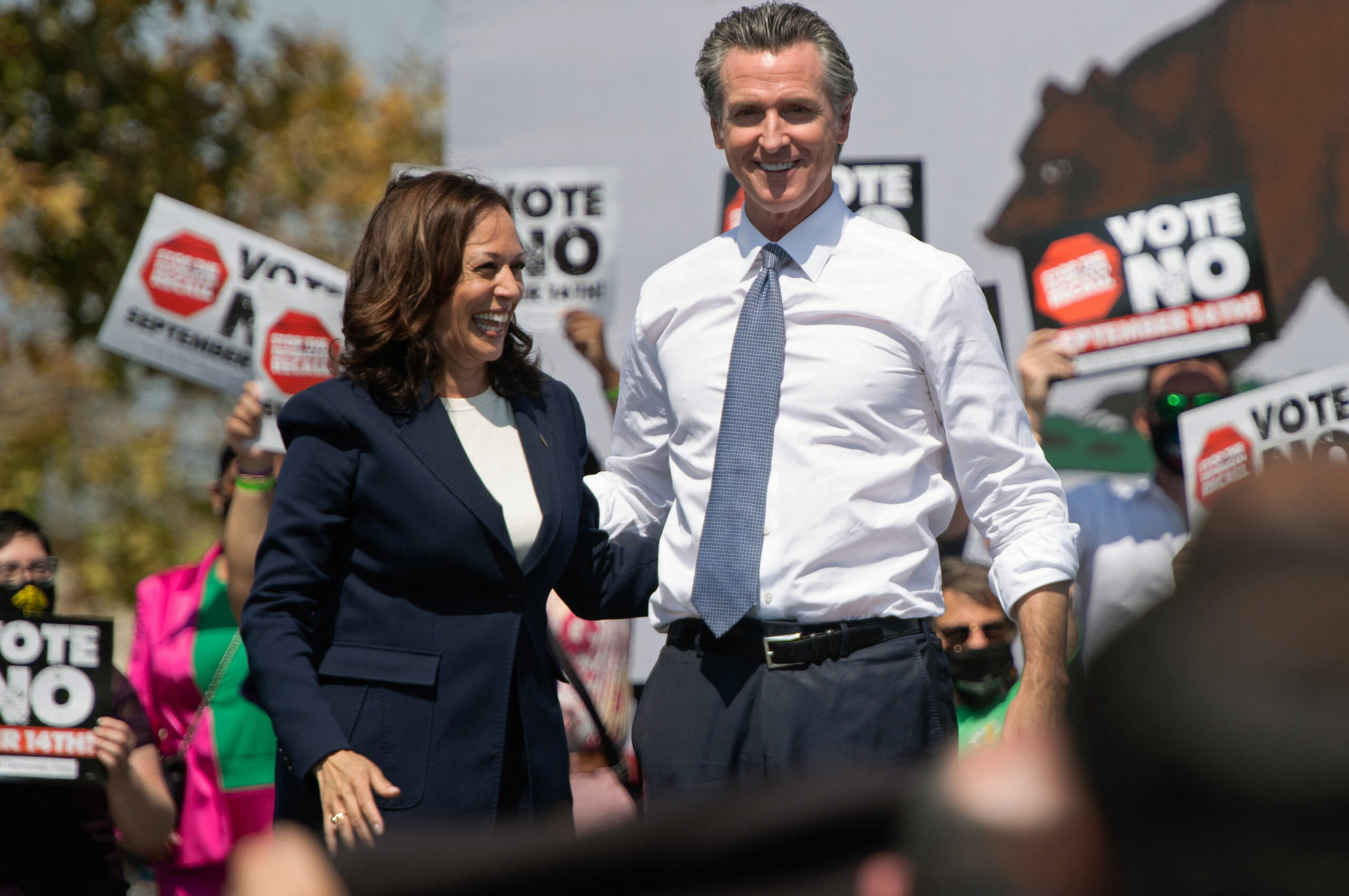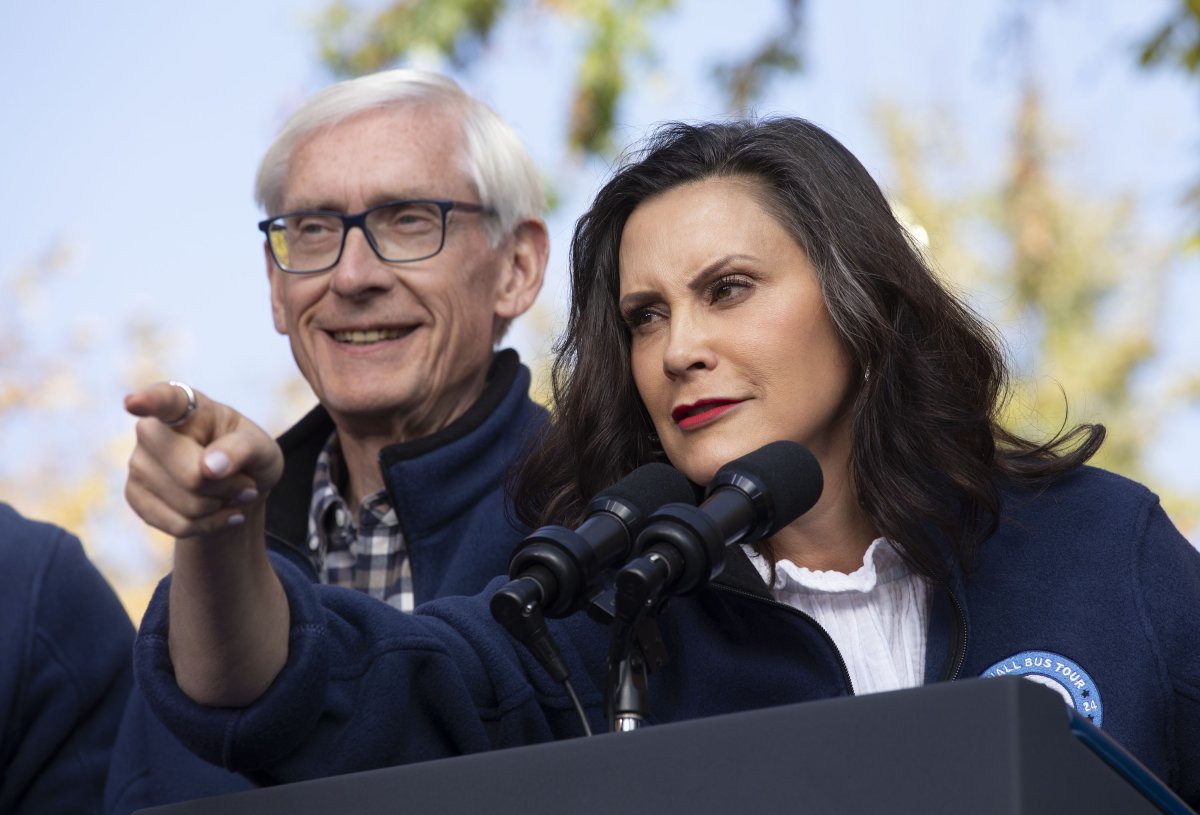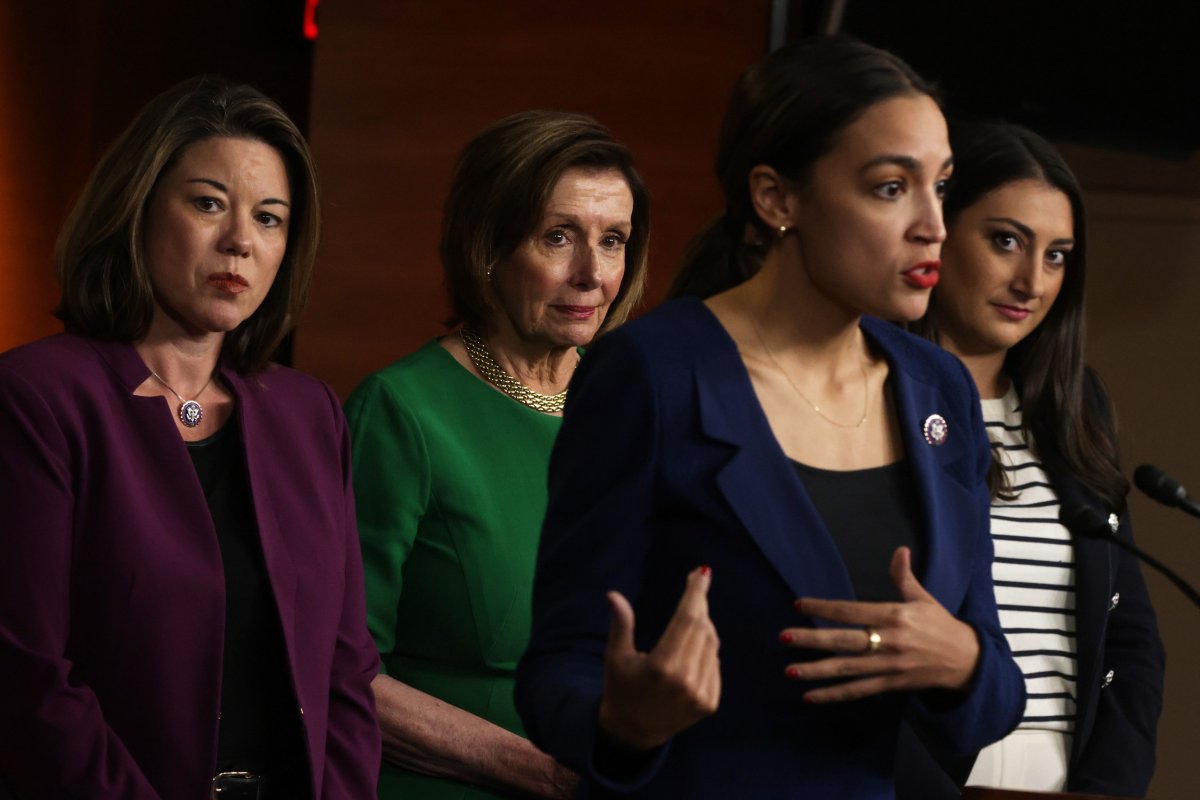
The Democrats must now reckon with the path forward after losing not only the presidency to Donald Trump but also the Senate and possibly House, handing the Donald Trump and the Republicans total control of the federal government.
The 2024 election did not play out the way Democratic leadership anticipated, with heavy losses leaving the party on its backfoot, perhaps even more so than when Trump won in 2016. When President Joe Biden and Vice President Kamala Harris depart the White House in January 2025, the Democrats will be in the political wilderness.
Looking Toward 2028
Biden’s decision to drop out of the race and hand over the campaign to a successor resulted in a list of potential replacements and an idea as to whom could carry the party’s banner in the next election.
Harris topped the chart, given that she was the sitting vice president. But other names in the mix included Senator Joe Manchin – who registered as Independent in May 2024 – Michigan Governor Gretchen Whitmer and California Governor Gavin Newsom.
Saul Loeb/AFP via Getty Images
Newsom in particular appeared poised to take a leading role as one of the favored among even the small pool of potential candidates to replace Biden, though the party quickly coalesced around Harris as candidate, ending any plans for an open process.
Harris and Newsom, both California natives, are friendly — at least publicly — though there were signs during her abbreviated presidential run that Newsom was keeping an arm’s length. The governor appeared at the DNC and made brief remarks from the convention floor, but did not speak from the main stage. His campaign told the media he was offered a speaking slot on the first day of the convention, but had a family commitment and could not make it.
Newsom endorsed Harris and took on a role of campaign surrogate, though his visibility on the trail was notably less than when Biden was at the top of the ticket. He also made a backhanded quip about picking Harris as the nominee during an appearance on the popular Pod Save America podcast, in which he said she was picked in a “30-minute convention.”
“We went through a very open process and a very inclusive process…a 30-minute convention between tweets and other tweets. It’s amazing and you know what is amazing is how unified everyone is. I mean it’s next level,” Newsom said.
“Almost 25 years before we were both in politics…we were friends before. None of us knew what we were going to do in the future,” he added.
With the Harris campaign ending in defeat, Newsom’s decision to keep some distance may prove his saving grace should he decide to throw his hat in the ring in 2028. But even if he made it through the primaries, Newsom would enter a general election as another liberal California politician with policy positions similar to those that failed Harris, running a state that a majority of voters see as too far to the left.
“We just had an entire nation say we don’t want to be like California,” Jennifer Jacobs, a GOP strategist, told CalMatters.
If Not Newsom, Who?
Governor Whitmer of Michigan could see her star continue to rise, having gained national attention as a much-disliked figure among Republicans for her handling of the pandemic in her state. She went on to serve as co-chair in Biden’s reelection campaign, putting her in touch with donors and organizers at a national level.

Bill Pugliano/Getty Images
Whitmer was one of the early supporters of handing the campaign to Harris, helping quickly narrow the field of competitors after Biden dropped out of the race.
Trump once referred to Whitmer as “the woman in Michigan” and put himself at odds with the governor during the pandemic, during which Whitmer was the target of a kidnapping plot hatched by militia members.
Other potential paths forward for the Democrats include some of the candidates that the party had considered for the vice-presidential nominee, which included the likes of Pennsylvania Governor Josh Shapiro, Kentucky Governor Andy Beshear, North Carolina Governor Roy Cooper and Transportation Secretary Pete Buttigieg.
The party also formally vetted New Mexico Governor Michelle Lujan Grisham, Commerce Secretary Gina Raimondo and former Representative Cedric Richmond of Louisiana.

Angela Weiss/AFP via Getty Images
Shapiro and Cooper drew the most public interest prior to the campaign naming Minnesota Governor Tim Walz as the pick since each governor came from what many viewed as critical swing states for Harris to win.
Shapiro in particular remains a popular figure, with reports indicating that he was the runner-up to Walz and nearly the pick himself. Senator Ted Cruz vocalized a question that had been whispered among Democrats: “You ought to ask yourself why didn’t she pick Josh Shapiro as her VP?”
Cruz told Fox‘s Maria Bartiromo ahead of Election Day that the party likely “could not stomach a candidate who was Jewish,” highlighting a fissure in the Democratic party over Israel and its war in Gaza.
USA Today had picked out Beshear as “one of the most prominent potential running mates” for Harris due to his success, much like Cooper, of winning a deep-red state as a centrist Democrat.

Andrew Harnik/Getty Images
One of the key factors behind Beshear’s appeal is the fact that he expanded his margin of victory between his two races, having narrowly edged a win in 2019 by half a percentage point but achieving a five-point gap in 2023. Beshear credited a hard-working on-the-ground campaign for that improvement.
Beshear also positioned himself as a direct opponent of Vice President elect JD Vance, slamming Vance for his best-selling memoir Hillbilly Elegy and how it portrayed Kenucky, saying repeatedly that Vance, who was born in Ohio, “ain’t from” Kentucky.
New York Representative Alexandria Ocasio-Cortez may find herself in a more prominent role due to her age and continuing popularity, but also due to the seeming deftness with which she has learned to navigate an often-hostile Congress.

Alex Wong/Getty Images
She also serves as vice ranking member on the House Oversight Committee, one of the most powerful committees in the House. Ocasio-Cortez has therefore worked more with Representative Jamie Raskin, D-Md.
“[AOC] is gaining seniority in the Democratic machinery through her ranking committee positions and influence in caucuses,” according to Mark Shanahan, an associate professor in politics at the University of Surrey in the U.K. and co-editor of The Trump Presidency: From Campaign Trail to World Stage.
However, the infamous “Squad” in the House, which includes Ocasio-Cortez as well as Representative Ilhan Omar of Minnesota, has shed influence after two if its members, Reps. Cori Bush of Missouri and Jamaal Bowman of New York, went down in defeat in their primaries.
And with a backlash against progressivism evident in Tuesday’s result, even Ocasio-Cortez may be facing a diminished influence in the party when the 119th Congress forms in January.
